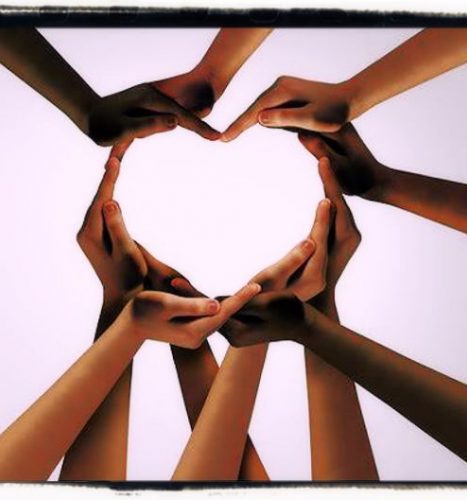
We are what we do is a statement which creates the foundation of Ethics, if we behave properly and we do some good deeds, we can really improve the world
I am only one, but I am one. I cannot do everything, but I can do something. And I will not let what I cannot do interfere with what I can do.
Edward Everett Hale
Life is energy, save, care and don’t waste it! It’s so expensive!
Carl William Brown
We are what we repeatedly do. Excellence, then, is not an act, but a habit.
Aristotle
What we do now, echoes in eternity.
Marcus Aurelius
“We are what we do” is a well-known statement in philosophy. It’s the strong foundation of Ethics, if we behave properly and we do some good deeds, we are good person and true philosophers, since it was the great Aristotle, known as one of the great philosophers who have ever lived, who said “We are what we repeatedly do. Excellence, then, is not an act, but a habit.” Therefore the meaning is simple, we must get used to do good actions, since what defines the human beings are not what they thinks or the words they speak, but on the contrary what one person does, that is to say its actions.
As a matter of fact the actions of the different people reveal their true nature. People often fool themselves and other persons as well through their words and their hypocrisy, but through our actions we might and could really change the world, for better or for worse. All of our tiny thoughts, words, and actions add up to the whole. You are a significant puzzle piece, and how you live your life echoes for eternity and can make the difference. So how can you change the world? We Are What We Do is a new kind of movement inspiring people to change the world taking one small action at a time. Our philosophy is simple: small actions for lots of people is equal to big change.
Share your gifts. Spread joy. Be nice to people. Stand up for what’s right. Making this world a better place for everyone begins with you and me. This life is rough enough as it is, yet many people do nothing but contribute to the negativity. Selfish individuals who complain, hurt, and disrespect are everywhere. Their indifference is a virus that spreads and seeps into all of our lives.
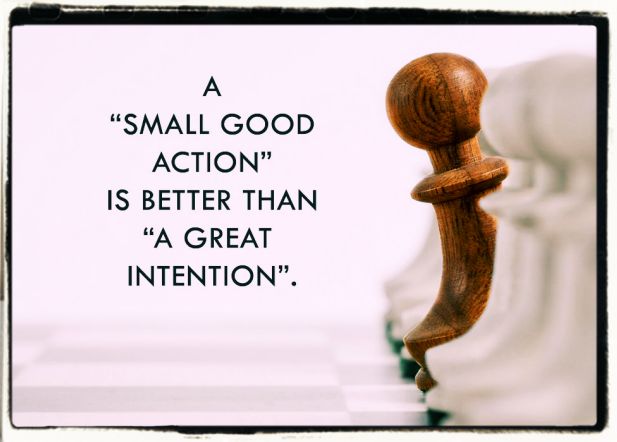
We can’t afford to passively accept this. We must rise up and fight for a better world. We must envision a place of caring, of compassion, of love. We must actively be a part of the solution. I’m far from perfect, but I try to do my part to give of myself and to create a bit more good feeling each day. I choose passion, integrity, respect, and kindness.
Let’s accept the challenge and start with some simple actions to change and improve the world we live in!
Here’s our list of simple, everyday actions you can do to help change the world (and have fun while you’re doing it). It could be doing something for the community like shopping locally, something for the environment like avoiding plastic bags, or something for you, like learning to paint, sing or speak Spanish… These simple actions come from ‘Change the World for a Fiver’ and ‘Change the World 9 to 5’ Click to see the list by book.So how does this work? Click on an action to see what it’s all about or, if you ‘re ready to do the do, tick each action you have completed and press the “Done!” button down below. Your actions will be added to the total, there on the top-right. Just like that.
1) Decline plastic bags wherever possible.
Every person in the UK uses up to 167 plastic bags every year. That’s 10 billion bags all together. All sitting in huge land fill sites producing tons of methane gas. And methane gas contributes to global warming. All this from a humble shopping bag. And if you consider a plastic bag can take up to 500 years to decay you realise that; ‘Houston, we’ve got a problem.’ So, where to start in helping to reduce our growing bag mountain? Well, there is an alternative. It’s called a shopping bag and apparently in France, it’s very chic. Failing that, start by just using fewer bags at the check out, or better still, take old bags with you to the shops when you can. Maybe we can influence supermarkets to supply biodegradable bags. When they smile sweetly in a helpful manner and offer you a bag just remind them politely they’re not, in fact, being very helpful. One thing is certain, with very little effort we can all use fewer than 167 bags a year.
2) Read a story with a child
When kids ask you to read a story to them it’s because they know something you don’t. They know you’ll both feel richer for the experience (they know they’ll get an extra half hour before bed as well). Remember how much you enjoyed the experience as a kid – how your imagination was captivated. Well now it’s your turn to pass on that feeling and experience how rewarding storytelling really is. And not having kids is no excuse. Read to a nephew or niece, a godchild or friend’s child. Local schools and libraries are often crying out for people to read to pupils. Reading and listening to books actually rewires a child’s brain, speeds up their grasp of language, helps reduce stress and boosts self esteem. So how terrible that 60% of children go to bed without a story.
Can’t find a book they like or aren’t bored with, by the fifteenth visit? Make up your own stories. You might be quite good at it.
3) Fit at least one energy-saving light bulb
They’re not cheap, these energy saving light bulbs, but over their lifetime they’ll save you 65 quid and a lot more besides. And we’re not just talking about the pain of getting the wobbly step ladder out from under the stairs but the environmental saving this small action can make.
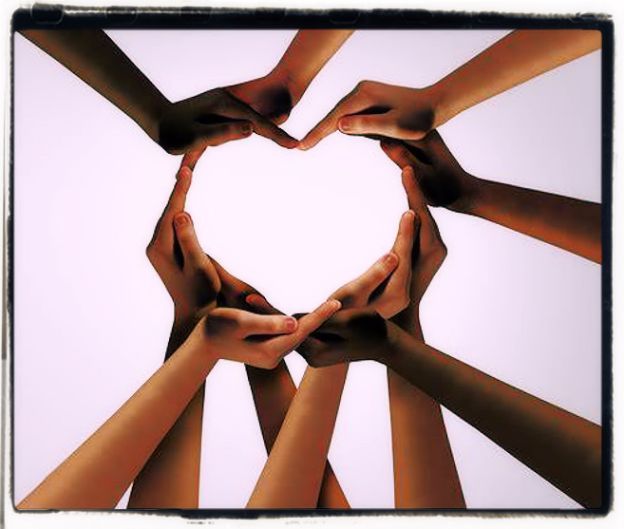
Most of us use light bulbs designed about 100 years ago, inefficiently producing nearly as much heat as light. And it doesn’t end there, along with heat they produce carbon dioxide the nasty little gas that helps cause global warming. In fact if every British household fitted just three bulbs enough energy would be saved to supply the entire country’s urban lighting. (who does work this stuff out?). So lower bills over a year and a cleaner planet… err, why wouldn’t you adopt this action?
4) Learn basic first aid
It takes fifty hours to learn to drive but only two to learn how to save a life. What else are you going to do in that time that is going to make such a difference? Watch ‘stars in their eyes’ twice over? It can take just four minutes for someone with a blocked airway to die, but eight minutes for an ambulance crew to arrive. Your two hour training would show you how to save that life immediately. The idea of saving someone’s life is cool. In fact, it’s about as cool as you can possibly get, especially when you realise that statistically the person you help is unlikely to be a stranger. They’re more likely to be a friend or relative. Imagine saving your best friend’s life.
Imagine giving up two hours of your incredibly busy schedule juggling the school run, food for the weekend and sending emails, with something really important. Both St. John Ambulance and the Red Cross have essential skill courses find out more at
5) Smile and smile back
Are you a smiler? Chances are you could make a bit more effort. And help influence others too. We all know the Mr Misery in the office or Ms Glum at the petrol station. Get them to smile more. It takes up half as many muscles as it does to frown and it makes you and others feel twice as good. Smiling also makes you appear approachable and more attractive. It says: ‘I like you, you make me happy, I am pleased to see you.’ People can even tell when you are smiling from the intonation of your voice. So smile when you’re on the phone. Start the day with a smile. Stick a reminder on your bathroom mirror. You actually can’t smile too much, although American synchronised swimmers accepting Gold medals come pretty close.
6) Take public transport when you can
Is this a joke? Public transport sucks. I’m a free man and I have a car. I love my car and I’m going to use it.
This action tends to bring out extreme reactions. We love cars too, especially those new Smart convertibles. It’s just a question of balance. How many car journeys are really necessary? When was the last time you sat on a bus? It really can be quite fun, especially on the top deck with kids. Consider this: A double-decker bus carries the same number of people as 40 cars. And it’s going there anyway. Buses are seven times safer than cars and obviously more environmentally friendly. Imagine if everyone with a car took just one bus journey a week how much our carbon emissions would be reduced. And if you are driving to work or school, share the journey with a friend. You can find out more at www.liftshare.com So, don’t feel too guilty about driving your new two ton diesel guzzler, just give it a rest occasionally Check out a short film about this action produced by BBC Broadcast
Broadband users only Click here to view (Windows Media Player needed)
Lots of people
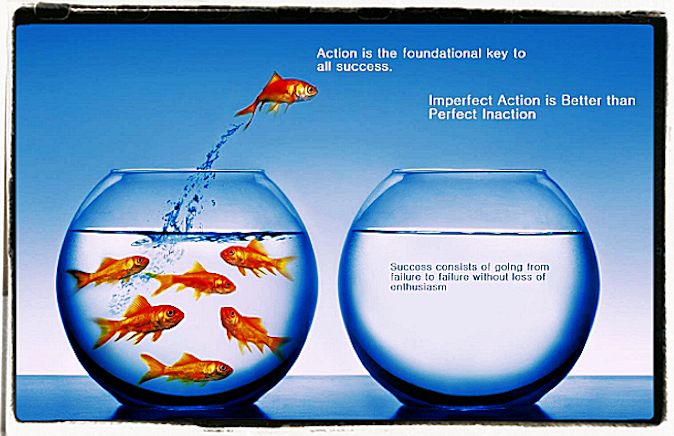
7) Plant a tree
Trees are amazing things. They take in stuff we don’t like (carbon dioxide) and pump out stuff we do (oxygen). And yet we get rid of these amazing things every year. In fact, 33 soccer pitches of trees are cut down every minute worldwide. You can do something to help. And you don’t need to be able to tell your Dimmocks from your Titchmarsh to do it. Plant a tree. Each one you plant will provide oxygen for two people for the rest of their lives.
‘The planting of a tree is a gift you can make at almost no cost and trouble and it will far outlive the visible effect of any of your other actions, good or evil.’ So said Mr.1984, George Orwell. So where to start? You can visit www.woodland-trust.org.uk or www.treesforlife.org.uk or why not get hold of some Scots pine seeds and grow your own Christmas tree? You can gather round on Christmas morning and say – ‘That’s it. That’s my Christmas present to all of you for the next 100 years
8) Have a bath with someone you love Save water and have fun.
A bath full of hot bubbly water is too good not to share. And when you consider an average bath uses 65 litres of water you’ll not only feel good in the bath but feel good afterwards too. Just get out before everything becomes too wrinkly and make sure you don’t get the taps end.
9) If it says 30mph, do 30mph
We know you’ve heard it all before. Slow down. Kill your speed. We know it makes sense and yet we all speed occasionally. It seems no matter how many times we are told, or no matter how many cameras there are, we still do it. Well here’s a fact that you’ll remember: At 35 mph you are TWICE as likely to kill someone you hit as at 30 mph. So by sticking to the speed limit you can greatly reduce your chance of being involved in one of the 3400 fatal accidents in the UK each year. Pass it on.

10) Turn your thermostat down by 1º
This is a ‘no brainer’.
Want to save money? Want to use less energy as a household? Turning your thermostat down by just one tiny degree will hardly make any difference. Just an average £25 a year or 10% of your heating bill, that’s all. Why stop there? You may want to make your home more energy efficient or invest in solar power?
In order to persuade and convince you to take some good actions here are some pragmatic information!
ENERGY
• Americans waste $300 billion per year just by not switching off lights and leaving computers, TVs and videorecorders on permanent stand-by.
• Turning down the heating by just one degree, or using one hour less heating a day, can reduce the fuel bill by 10%
• Insulation and double windows in a house can save up to one third of heating costs.
WATER
• Taking a bath uses three times as much water as taking a shower.
• We use about 155 litres of water each day on average, 70% more than 30 years ago.
• Leaving a water tap running can waste up to 10 litres of water a minute.
• In half an hour, a garden sprinkler uses as much water as a family of four in a day.
TRANSPORT
• Every day British people drive over five million miles on short car journeys under one mile.
• Short car journeys cause the worst pollution because the engine is cold and has to warm up.
• Driving at 80 km per hour uses 25% less fuel than at 110 kph.
RUBBISH
• The average family throws away 2 kilos of rubbish every day.
• Over 6 billion glass containers are used each year in Britain. Only 25% of them are recycled.
• Each ton of paper recycled saves 15 average-sized trees, as well as the animals they support.
Other good actions that you could do to improve the world are certainly the following ones, read carefully and meditate over them!
– Practice common courtesy
– Be sincerely grateful
– Show positivity
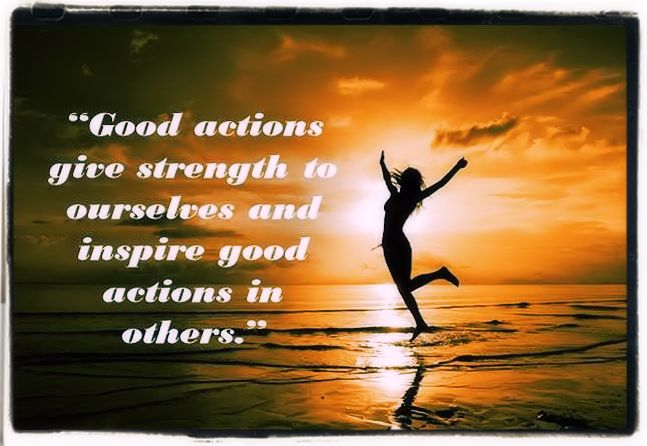
– Share your knowledge
– Care about other people
– Cultivate your good manners
– Volunteer and help other people
– Rise up against wrongdoing
– Make new friends
– Respect other people’s ideas
– Embrace and consider diversity
– Do some good deeds
– Be generous and donate
– Always Apologize and forgive
ENERGY AND CLIMATE CHANGE
1. Conduct an energy audit of your home or business.
2. Replace your lightbulbs with compact fluorescent bulbs.
3. Buy or rent a hybrid car.
4. Install solar water heaters or solar electric panels at your home or office.
5. Buy a flex-fuel car and fill your tank with ethanol.
6. Buy energy-efficient appliances.
7. Update your company’s energy management system with smart metering.
8. Ask your utility company how to buy clean, renewable power.
9. Walk, bike, or carpool to work.
10. Donate to organizations that install renewable energy systems in developing countries.
11. Invest in a clean energy fund.
12. Calculate your carbon footprint, reduce your energy use, and offset the rest with investments in clean energy.
13. Demand action from your elected officials on climate change.
Global Health
14. Implement a model workplace health and wellness program to generate awareness among your neighbors.
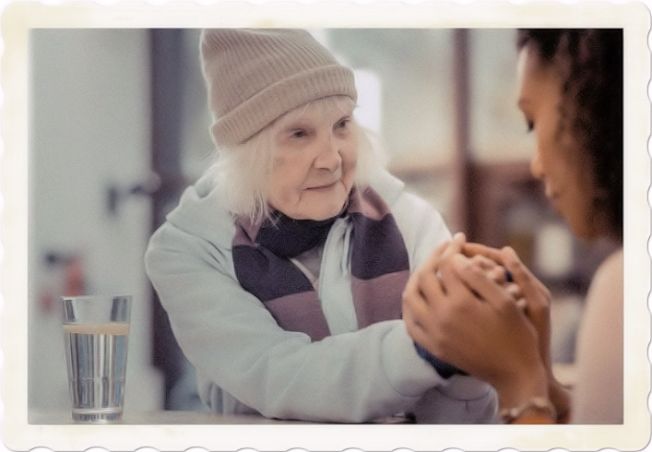
15. Stop smoking.
16. Teach children about diet and exercise to prevent chronic disease.
17. Get an annual physical.
18. Train community personnel to perform first-level health services.
19. Deploy MBAs in developing countries to build local health management.
20. Provide employee vaccinations (i.e. flu shots) and increase employee health benefits.
21. Donate to organizations that offer free immunizations for children in high-risk areas.
22. Donate water sanitation equipment to organizations dedicated to clean-water initiatives in developing areas.
23. Donate WHO/UNICEF oral rehydration solution packets, at 6 cents each, to alleviate diarrhea-induced death among children.
24. Walk or ride a bicycle to work to keep fit. Encourage your friends and neighbors to do the same.
25. Provide transport and logistical services to improve healthcare delivery.
26. Contribute medical equipment to developing world clinics.
Poverty Alleviation
27. Donate leftover bulk food to a local shelter.
28. Brew Fair Trade coffee in the workplace and buy Fair Trade products.
29. Start a program in your workplace to provide pro-bono or volunteer services.
30. Donate used computers to schools or start-up companies in need, locally or internationally.
31. Offer your technical expertise to agencies mounting emergency aid programs.
32. Donate to microfinance programs with entrepreneurial training for women in rural areas.
33. Invest in income-generating agriculture projects in developing areas.
34. Support efforts to bring internet and computers to rural areas.
35. Create niche markets for products produced by your company.
36. Start an exchange program designed to provide expertise and skills training.
37. Advise developing countries on diversifying and strengthening investments.
38. Create new financial instruments for small businesses to access capital.
39. Launch a workplace program to raise funds for an effective NGO.
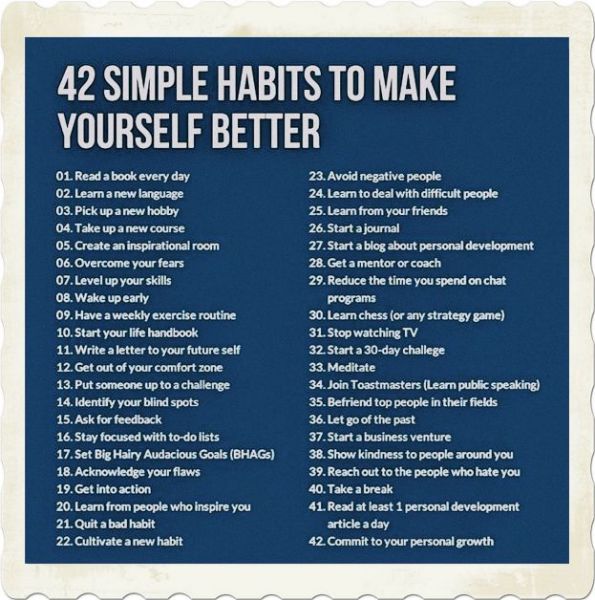
Education
40. Sponsor a child with a scholarship to attend school.
41. Teach a lesson to others in your school or community about education in developing countries.
42. Donate funds to buy a school uniform or supplies for a child.
43. Volunteer to help build a school abroad.
44. Contact your legislative officials to advocate funding for universal education.
45. Host a fund-raiser to support an NGO helping children in developing countries go to school.
46. Develop a “sister school” relationship to support a school in a developing country.
47. Donate to a school lunch or feeding program to create incentives for parents to send their children to school.
48. Donate to UNHCR or other organizations working to provide education for children in conflict areas.
49. Have your workplace sponsor a school.
50. Join the Global Campaign for Education.
51. Start a club at your school or in your community to support education for children.
52. Sponsor teachers to attend professional development programs to improve the quality of education.
Courtesy of the Clinton Global Initiative.
A Selfish Argument for Making the World a Better Place – Egoistic Altruism
If you are interested in climate and environment matters you can also read
Environment questions and answers
Environment and climate debate
Free download – 20 climate connection challenges for classrooms across the world

